What's at stake in 3 days of hearings in Donald Trump's Florida classified documents case
Former President Donald Trump will begin three days of hearings Friday aiming to persuade a federal judge to dismiss charges he mishandled classified documents after he left the White House.
Trump contends the Justice Department didn't have the authority to appoint or fund special counsel Jack Smith, although courts have upheld the post for decades. Prosecutors call his arguments "wrong" because several laws allow the attorney general to hire special lawyers to "conduct any kind of legal proceeding, civil or criminal.”
U.S. District Judge Aileen Cannon will hear arguments about whether Smith's appointment was justified on Friday, including from three groups of advocates on both sides not involved in the case. On about funding for the investigation on Monday morning.
On Monday afternoon, Smith will ask Cannon to prohibit Trump from saying the FBI was authorized to shoot the former president during the search of Mar-a-Lago. The FBI has said it followed standard policy and Trump wasn’t there when the search happened, but prosecutors worry Trump's posts could lead to threats and harassment of agents as they have with pasts targets of his ire.
On Tuesday, Trump will ask Cannon during a closed hearing to throw out the documents seized during the search, which he contends was unconstitutional. Prosecutors said the search countered Trump's "obfuscation and deception" about storing what turned out to be hundreds of national defense records at Mar-a-Lago.
Here’s what we know about the arguments:
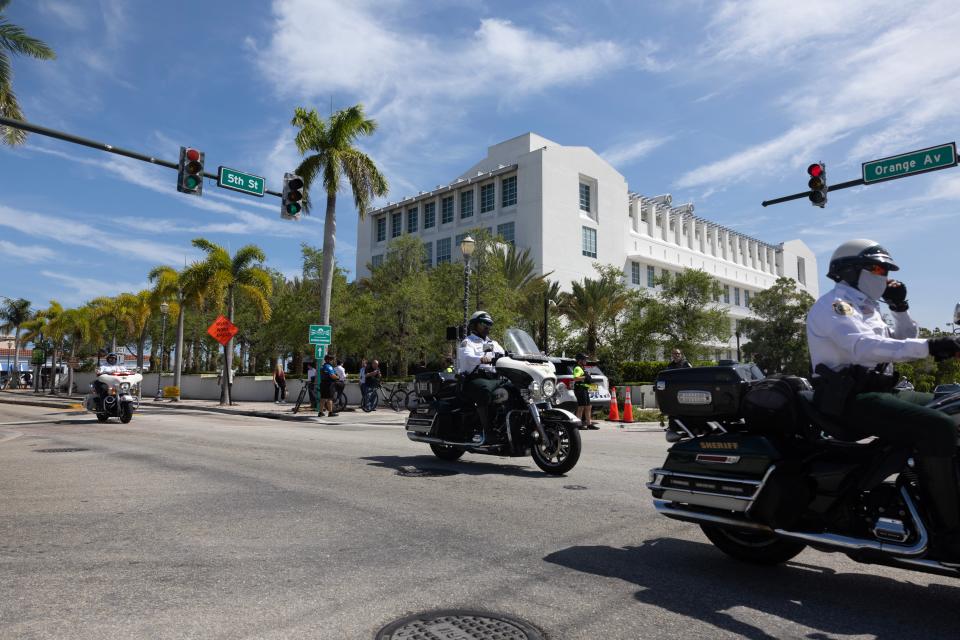
Trump challenges how Garland appointed Smith
Trump has pleaded not guilty to 40 charges of hoarding national defense records at Mar-a-Lago after leaving the White House in January 2021.
In November 2022, Attorney General Merrick Garland appointed Jack Smith, a former career Justice Department prosecutor, to oversee two investigations. One looked at Trump's effort to overturn the 2020 election and his role in the Capitol attack on Jan. 6, 2021, the other at his retention of classified documents after leaving office.
Special counsels serve as prosecutors reporting to the attorney general but remaining independent of the Justice Department's day-to-day operations. Garland said in November 2022 the U.S. attorney and the department's criminal division were prosecuting 900 defendants at that point related to Jan. 6, but that a special counsel was required for a sensitive, independent investigation of Trump after he declared his candidacy for president.
Smith secured two indictments of Trump from grand juries, on four counts in Washington related to election interference and 40 counts in Florida related to classified documents. Trump has two co-defendants in the documents case.
During the last 25 years, at least a half-dozen special counsels have been appointed under Democratic and Republican administrations.
Former Attorney General Janet Reno enacted special-counsel regulations after a previous law governing independent counsels expired. But Trump contends only Congress can create such a powerful post through a law, not through regulations.
“As such, Jack Smith lacks the authority to prosecute this action,” Trump lawyers Todd Blanche and Christopher Kise wrote.
Smith’s team replied that several laws allow the attorney general to hire special attorneys, including one to “conduct any kind of legal proceeding, civil or criminal.” Another law authorized the attorney general to appoint officials to “detect and prosecute crimes against the United States.”
“These statutes authorize Attorneys General to appoint special counsels and define their duties,” Smith’s team wrote.
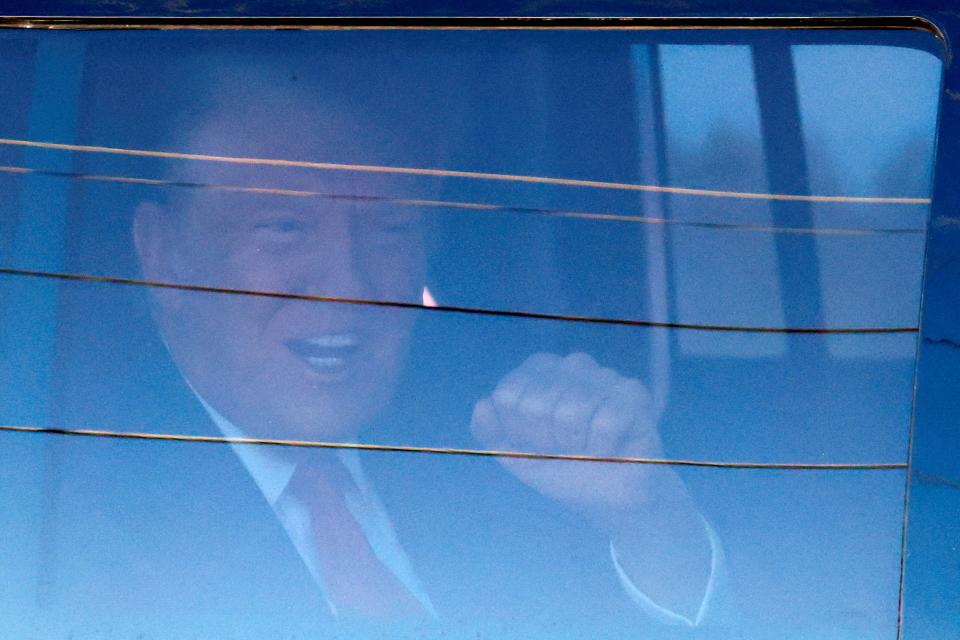
Courts have upheld special counsels including Robert Mueller
Federal courts have upheld special prosecutors for decades.
The Supreme Court ruled in 1974 that then-President Richard Nixon had to turn over tape recordings to a special prosecutor in the Watergate investigation. The high court ruled that Congress gave the attorney general the power to conduct the criminal investigation by law and the attorney general gave that authority to a special prosecutor by regulation.
The D.C. Circuit Court of Appeals upheld a subpoena from special counsel Robert Mueller during the Trump administration based on the Supreme Court decision. The circuit court also upheld Mueller’s prosecution of Paul Manafort, despite a claim the special counsel regulations were violated, because “they are merely statements of internal departmental policy.”
But Trump’s lawyers contend the Supreme Court decision “does not save Jack Smith” because the justices upheld the subpoena without analyzing the text of the laws justifying the special counsel.
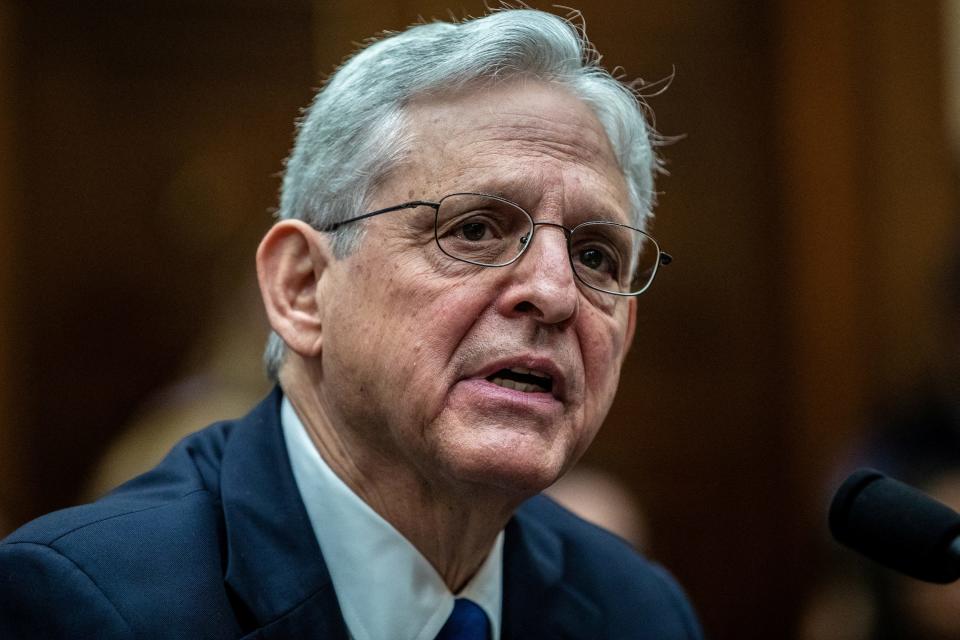
Republican lawmakers echo Trump in questioning legitimacy of special counsel
Republicans in Congress have raised the same questions as Trump. Rep. Thomas Massie, R-Ky., asked at a House Judiciary Committee hearing June 4 about the lack of legislation authorizing special counsels or requiring Senate confirmation for Smith.
Garland said the regulations were grounded in two laws cited by the courts, which allowed him to appoint special counsels, as previous attorneys general had done for decades.
“There are regulations under which the attorney general appoints special counsel,” Garland said.
Complaints about special counsels aren't only from Trump and his allies. Hunter Biden, the president’s son, argued the prosecutor in his cases for tax and gun charges, special counsel David Weiss, wasn’t appointed or funded correctly.
But U.S. District Judge Maryellen Noreika, who was appointed by Trump, rejected Biden’s argument based on the same laws that Garland cited in his testimony.

Judge approved three outside groups to make arguments about special counsel
As part of the all-day hearing, Cannon will allow three groups of outside advocates to give half-hour arguments.
One group of advocates includes former Attorney General Edwin Meese, a Republican who served under President Ronald Reagan. This group echoed Trump’s argument that no law supported Smith’s appointment ? and added that Smith would need Senate confirmation if the authority did exist, as required for U.S. attorneys.
Separately, a conservative legal advocacy group contends Smith is a mere employee who doesn’t have even the prosecutorial power of a U.S. attorney.
The third group includes former prosecutors and elected officials from both parties who call the two groups supporting Trump “mutually inconsistent” because one recognized Smith with too much power to avoid Senate confirmation while the other attributed too little power to prosecute cases. The group of former government officials contends the Constitution and laws “unmistakably establish the lawfulness of Special Counsel Smith's appointment.”
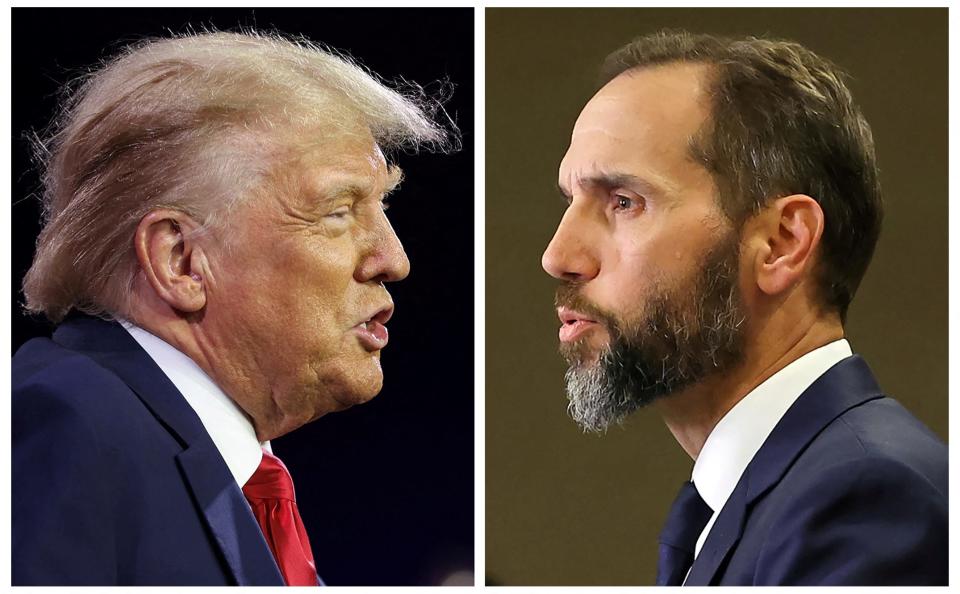
Smith's funding questioned
Cannon will hold a hearing at 10 a.m. Monday about a related argument from Trump that Congress hasn’t appropriated funding for Smith’s investigation. The prosecution is being handled “’off the books,’ without accountability or authorization,” according to Trump’s lawyers.
But Smith’s team argued the department has repeatedly paid special and independent counsels through a practice confirmed by federal law and history, including for special counsel Robert Mueller's investigation during the Trump administration.
At least six special counsels appointed since Reno created the regulations in 1999 were funded through a permanent appropriation for special counsels. In her decision upholding the special counsel's appointment in Hunter Biden's case, Judge Noreika's called the practice "well established."
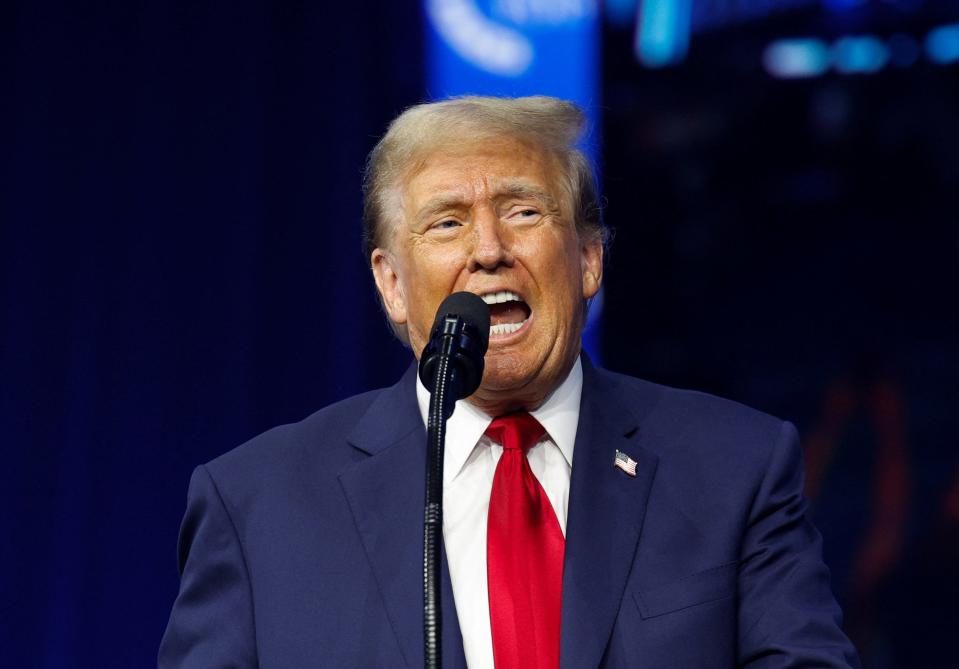
Smith seeks gag order against Trump over FBI posts
Cannon will hear arguments at 3 p.m. Monday about whether to restrict Trump from commenting on law enforcement officers involved in the case.
An all-caps email May 23 from Trump’s presidential campaign told supporters “DOJ was authorized to shoot me!" during the search for documents at Mar-a-Lago in August 2022.
The FBI said the policy for potential use of guns and ammunition was standard for all searches. Garland has said Trump’s description was “false” and "dangerous."
Prosecutors asked Cannon to change the conditions of Trump’s release so that he could be jailed if he makes statements that “pose a significant, imminent, and foreseeable danger to law enforcement agents participating in the investigation and prosecution of this case.”
Trump’s lawyers called the request a “shocking display of overreach and disregard for the Constitution” because it would prevent Trump from criticizing the raid as he campaigns for president. No FBI agents have been identified from the raid or suffered threats or harassment, Trump’s lawyers wrote.
Government lawyers in Trump's New York civil trial, his New York hush money trial and his federal election interference case said judges, court staffers and lawyers received threats from Trump supporters after his posts on social media.
Cannon initially rejected the request from prosecutors for not giving Trump’s lawyers enough time to respond before the Memorial Day holiday.
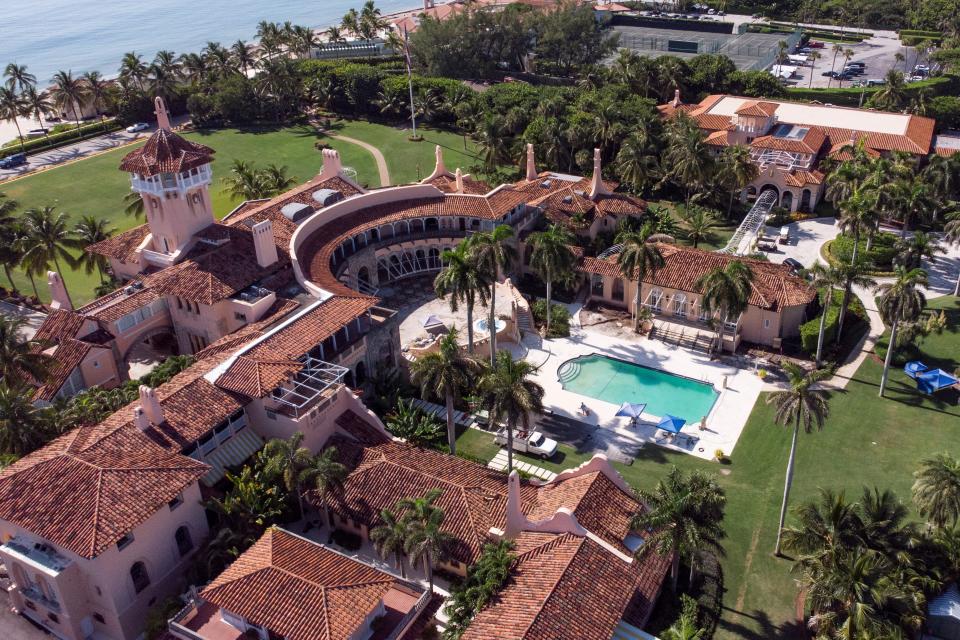
Trump calls Mar-a-Lago search unconstitutional
Cannon’s closed hearing on Tuesday will focus on whether the August 2022 search of Mar-a-Lago was unconstitutional and the evidence from it should be thrown out of the case.
Trump’s lawyers contend the search violated the Fourth Amendment because it was too vague, with agents rummaging through a 17-acre estate with a 58-bedroom mansion. Steven D’Antuono, who was the assistant director in charge of the FBI’s Washington field office, said FBI police preferred a consensual search and was overruled, Trump’s lawyers wrote.
The search, which revealed additional classified documents, was conducted after Trump lawyers Evan Corcoran and Christina Bobb met with investigators at Mar-a-Lago in June 2022. Bobb signed a statement that all classified documents had been returned to the government by that point, despite more being found during the search two months later.
Trump’s lawyers argued that prosecutors shouldn’t have been allowed to question Corcoran because of attorney client privilege. But U.S. District Judge Beryl Howell in Washington allowed prosecutors to question Corcoran – and the D.C. Circuit Court of Appeals upheld her decision – in May 2023 because of the potential he was involved in criminal activity.
Prosecutors argued the charges shouldn’t be dismissed and that the search was part of gradual efforts to retrieve government records. Trump retained classified records for nearly two years after leaving the White House in January 2021:
January 2022: Trump staffers turn over 15 boxes including 184 documents with classified markings, after a year of requests for presidential records from the National Archives and Records Administration.
February 2022: The Justice Department begins investigating Trump's retention of classified records.
May 2022: Investigators subpoena records from Mar-a-Lago.
June 2022: Trump lawyers turn over 38 more classified documents. Investigators subpoena security video that shows staffers moving boxes around the building.
August 2022: FBI searches Mar-a-Lago and seizes 100 more classified records.
December 2022: Trump lawyers notify federal authorities they found four more classified documents at Mar-a-Lago.
“Given Trump’s prior obfuscation and deception up to that point, there was ample reason to avoid seeking Trump’s consent, which would simply invite more deception,” prosecutors wrote.
Prosecutors said they will provide evidence from Trump’s former lawyers during the trial.
“The record shows that Trump consulted and corresponded with his attorneys to plan and carry out his crimes, triggering the crime-fraud exception and foreclosing Trump from excluding the evidence from trial,” prosecutors wrote.
This article originally appeared on USA TODAY: Trump's classified records case to focus on special counsel, search
